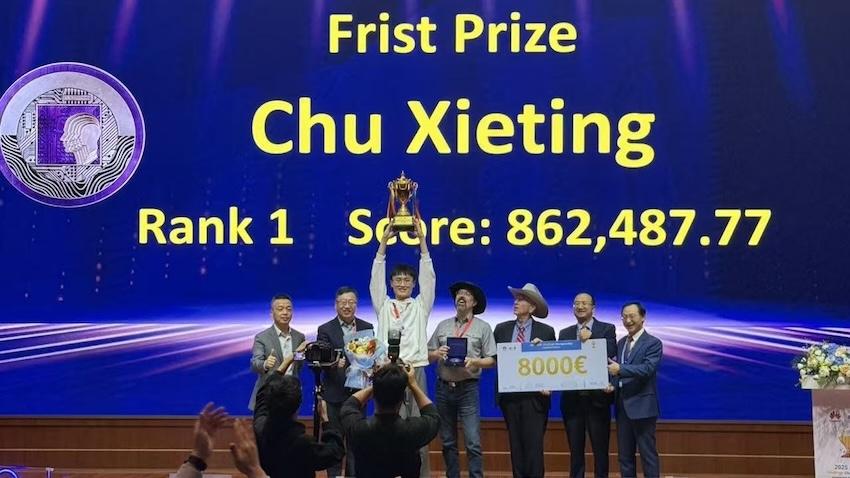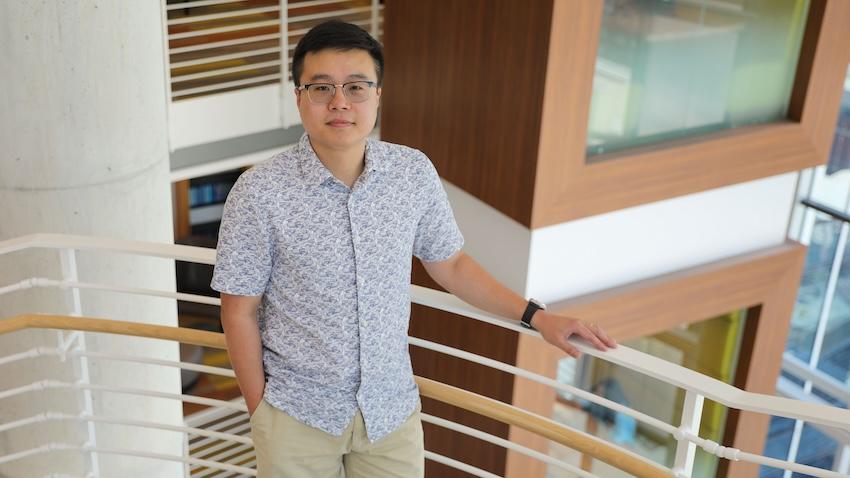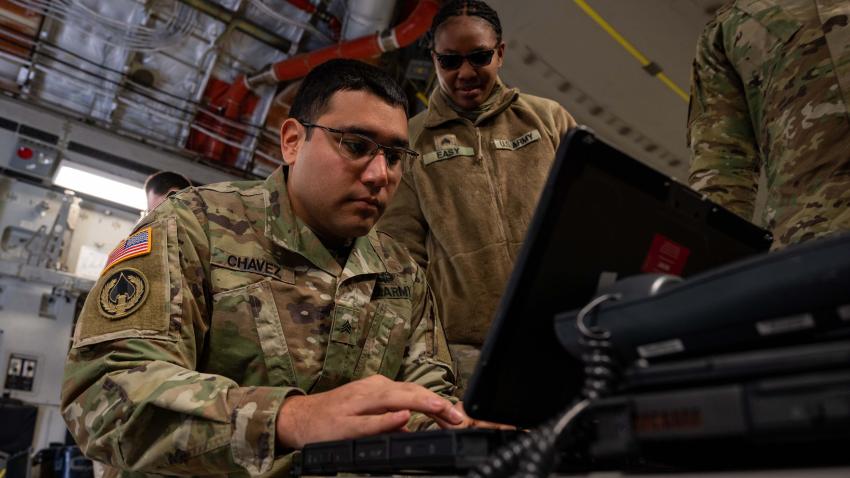
Army Vet Guides Student Team in Delivering Digital Solution for Military Operations
A team of Computing students has developed a digital intake system for the U.S. Army, which is set to be implemented as early as next month, transforming a time-consuming, paper-based process into an efficient, modern platform.
The project was part of the Computer Science Junior Design Capstone Expo, where students collaborate in teams to build functional software solutions for real-world clients. For team members Jonathan Collins, Joel Cave, Srithan Nalluri, Mark Podrazhansky, and Caden Virant, that client was the U.S. Army. School of Computing Instruction Lecturer Aibek Musaev led their Junior Design section.
“The Army spends a significant amount of time maintaining, documenting, and repairing equipment that allows them to complete their mission,” said Collins, a U.S. Army veteran. “Our system essentially took the current maintenance process and converted it from an entirely paper-based process to a completely digital one.”
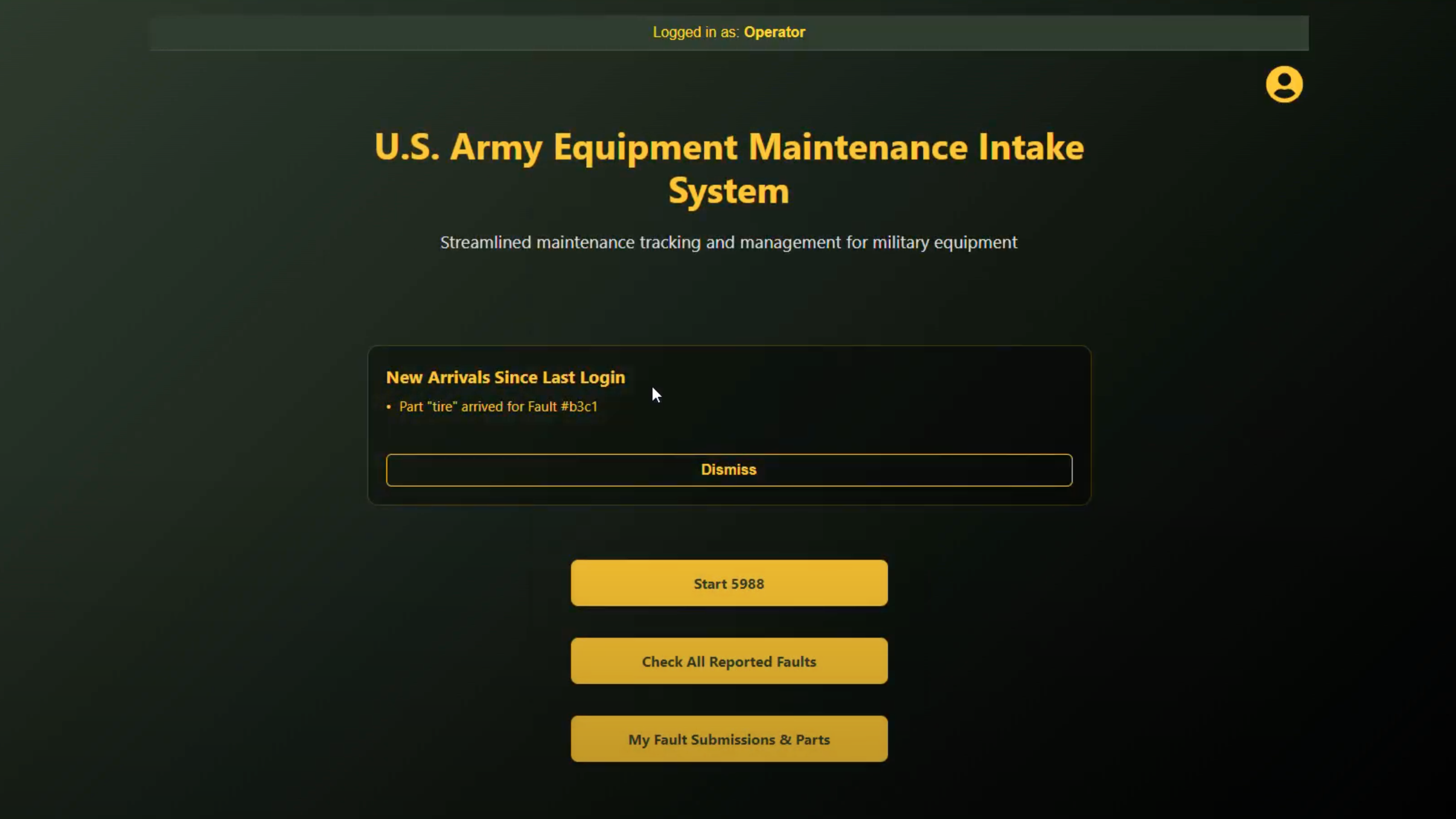
Above: A CS Junior Design Capstone team created a new intake system for the U.S. Army to manage maintenance tasks. Photos by Jonathan Collins.
The team built a streamlined web application utilizing a set of modern tools that enhance data management, create a user-friendly interface, and ensure seamless operations. The new system improves accountability and visibility across Army maintenance operations by digitizing the intake and tracking processes. It eliminates the risk of lost paperwork and makes it easier for personnel to stay updated on equipment status and repair needs.
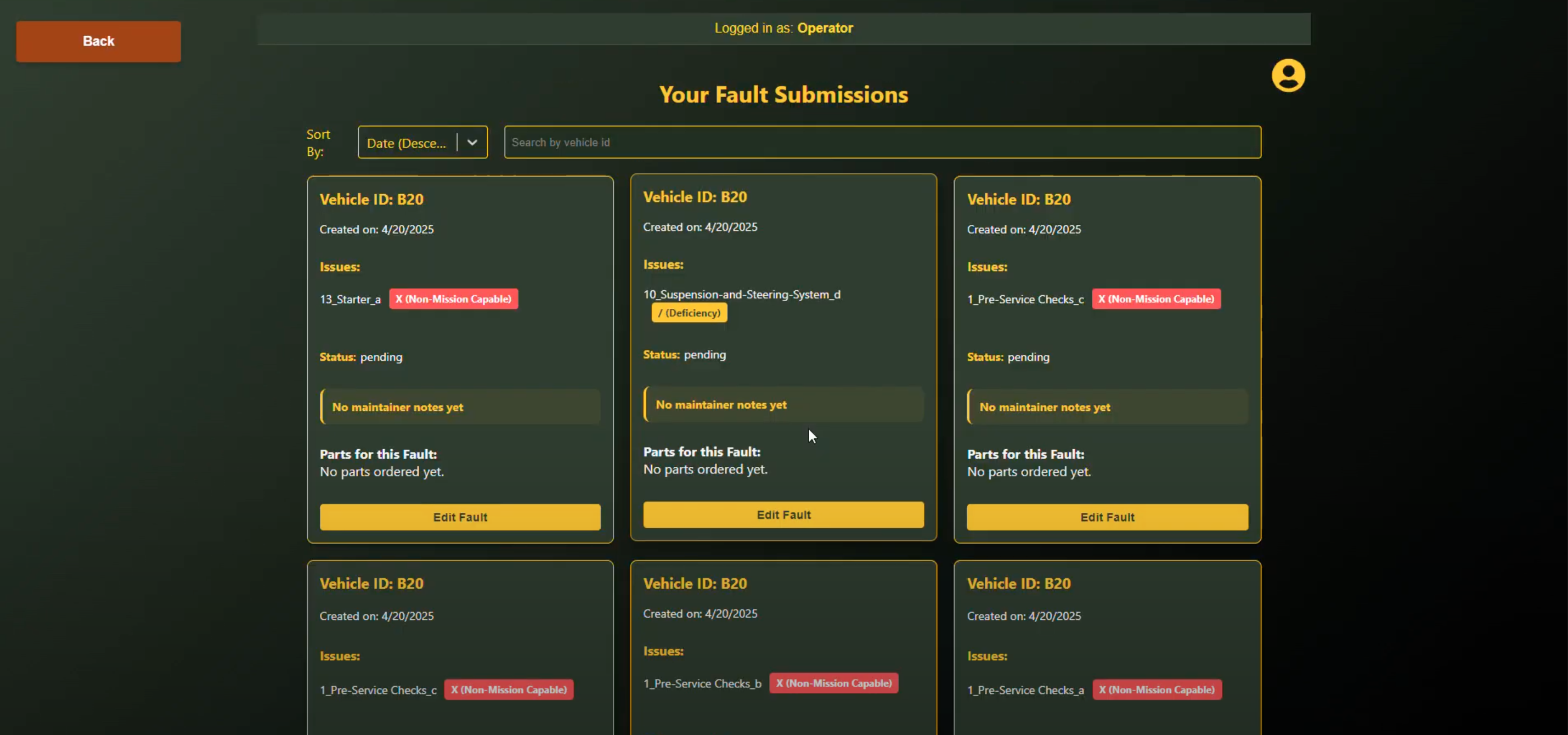
2nd Lt. Noah Parsons, the Army’s point of contact for the project, was impressed with both the product and the team’s professionalism.
“Georgia Tech students have completed the intake system to perfection,” Parsons said. “They performed exceptionally and professionally. I cannot stress how great of a job they have done for their class and for the Army as well. Our company intends to start using the intake system as early as next month.”
For Collins, who served four years in the Army before enrolling at Georgia Tech, the experience was meaningful.
“A large part of my role in the Army involved the very maintenance processes we’ve been working to improve,” he said. “I can’t even count how many hours my coworkers and I spent with the current system. Now, being able to use this new chapter of my life to make meaningful improvements feels incredibly rewarding.”
Collins also took the lead in communicating with the military client, helping the team navigate strict requirements and non-negotiable specifications.
With this system, the Army decided what they wanted, and the team was tasked with delivering exactly that with no variation.
The project taught the team critical lessons about ownership, communication, and collaboration under pressure.
“Communication with the client is the absolute most important thing,” Collins said. “You could have the best programmers in the world, but it won’t matter if you can’t deliver the product the client wants. Meeting often and getting consistent feedback was key.”
The Army plans to begin using the system as early as June, bringing the students’ work full circle and marking a meaningful contribution to real-world military operations.

